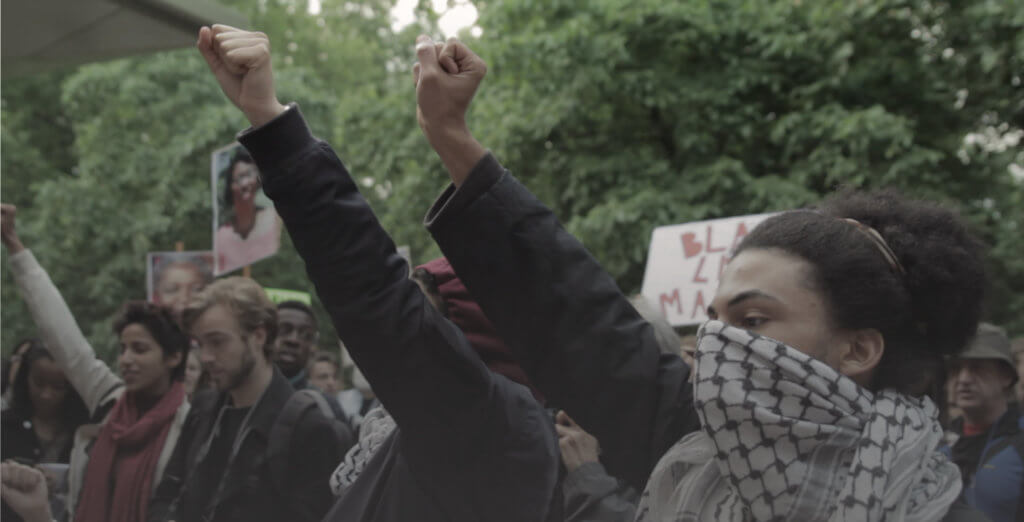
Generation Revolution is a documentary that follows the rise of young activists in the U.K. The film gives a real-time account of activism for young people of color as they are going through the motions of mobilizing. In speaking with Generation Revolutions’ directors Cassie Quarless and Usayd Younis, they provided insight on the importance of documenting the movement right now.
What do you hope the audience will take away from Generation Revolution?
Cassie Quarless: The main goal in the UK was to get people to think about activism seriously because I think there’s this real idea — that’s been changing with Black Lives Matter, Trump coming in and the Women’s March — that activism is something that other people do. The idea was to have people think about how people can get involved in their own communities and think about the changes that they can be engaged in.
Was portraying various levels of activism in the film purposeful?
Usayd Younis: When we set out to make this film we wanted to show that activism is a viable source for change. Radical activism, taking things in your own hands to see the changes you want to see in the world. We weren’t sure what to expect. We were a little afraid, especially when the group split how it would impact the film. We realize that depicting the reality was much more useful. Our audience deserved to know what they may be up against. Also so they might learn from the mistakes that people made. Showing that activists are just human beings, and it’s just like having a relationship with others is an important thing to depict and you often don’t get to see.
Cassie Quarless: The group that we followed. They were influenced by the idea of intersectional organizing. Seeing race, class, gender and sexuality intersecting. One thing we saw was that the groups had different ways of going about things. Black Revs were doing a lot more direct action. Our Group was about more grassroots, community organizing and I think for us, we weren’t making the judgment of what activism could look like. People have this idea of what activism looks like and it’s really a diverse thing. So you can decide what it means for you.
People have this idea of what activism looks like. It's really diverse thing.-Cassie Quarless Share on XHow have the people that you followed in the documentary approached being a millennial and an activist in this current time frame?
Cassie Quarless: Generation Revolution is about the new generation of young black and brown activists, specifically in the U.K. The idea that young black and brown people don’t care about politics, they’re apathetic, lost in Twitter and Facebook… all those things we hear, but in looking at our peers, we knew there was a lot of really cool stuff going on. They were really engaged. For some that we followed, they may not embrace the term millennial, but embrace their place in history. It goes back to the idea of intersections, they’re very proud that they can talk about inclusion of trans people, we can talk about issues of sexuality, we can talk about class and race as interlinked.
The idea of social media as a way to connect with other people, like-minded activist or potential activist, but also as a medium to get their message out there. We saw Our Movement set up a crowdfunding campaign for handing out homeless packages.you see the Black Revs communicating with people via social media.
For POC globally who are not mobilizing, what would be the first step/ground for starting?
Usayd Younis: A fear for people of the diaspora, they feel they have to put their heads down & get on w/ their lives Share on X.
Usayd Younis: A fear for people of the diaspora, they feel they have to put their heads down and get on with their lives. Actually, we find it’s not effective and it doesn’t work. They’re a community repressed constantly. Especially now, there a real need for our communities to stand up in unity. Even if it means getting involved in basic things; know what your community is made up of and how your community is being affected by things. People in the diaspora can be isolated from their neighbouring communities. A lot of groups are unaware of what each other is going through; that awareness is the first step. Understanding and then mobilising.
When we’ve shown the film, we’ve had a lot of discussions with the audience. Many who have not been aware that these sorts of movements exist. I think one of the goals of the film is to garner that awareness and show our community, other young people of color in particular, that there are people who are out there doing this. It is viable. It is something you can do. A lot of young people that have seen the film say, “yes there is something that I can do.” So in respect, seeing someone else doing is a tool in itself to encourage people to get involved themselves.
Watch the trailer and check out Generation Revolution at the Caribbean Film Series at BAM or check their website for local screenings in your area.


Thank you for this review,am checking out the screening dates and hoping to be able to go see it!
thank you!!! It was good, you would definitely enjoy!